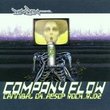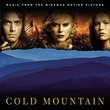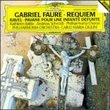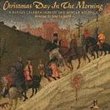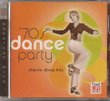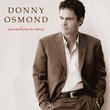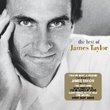| All Artists: Ludwig van Beethoven, Pyotr Il'yich Tchaikovsky, George Szell, William Steinberg, Staatskapelle Berlin, Vienna Philharmonic Orchestra Title: Beethoven & Tchaikovsky: Violin Concertos Members Wishing: 0 Total Copies: 0 Label: Naxos Release Date: 2/22/2000 Genre: Classical Styles: Forms & Genres, Concertos, Historical Periods, Classical (c.1770-1830), Modern, 20th, & 21st Century, Instruments, Strings, Symphonies Number of Discs: 1 SwapaCD Credits: 1 UPC: 636943190326 |
Search - Ludwig van Beethoven, Pyotr Il'yich Tchaikovsky, George Szell :: Beethoven & Tchaikovsky: Violin Concertos
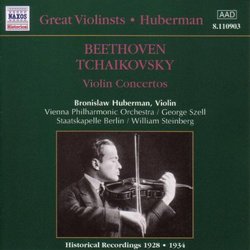 | Ludwig van Beethoven, Pyotr Il'yich Tchaikovsky, George Szell Beethoven & Tchaikovsky: Violin Concertos Genre: Classical
Huberman was one of the century's greatest violinists, noted for the profundity of his interpretations and the electric individualism of his playing. His 1934 version of the Beethoven concerto with Szell and the Vienna Phi... more » |
Larger Image |
CD DetailsSynopsis
Amazon.com Huberman was one of the century's greatest violinists, noted for the profundity of his interpretations and the electric individualism of his playing. His 1934 version of the Beethoven concerto with Szell and the Vienna Philharmonic stands among the best recordings of the piece, especially notable for the rapt intensity of the Larghetto movement. The Tchaikovsky, too, is a recorded landmark. Here, Huberman's flexible rubato, coloristic shadings, and rich tone put to shame the literalism of so many contemporary interpretations. The shaping of the violin's first entry is a virtual lesson in romantic phrasing and the Andante sings with rarely achieved poignancy. Mark Obert-Thorn's transfers are excellent. At Naxos's budget price, there's no excuse for not getting this one, no matter how many versions of these pieces you have. --Dan Davis Similar CDs
Similarly Requested CDs
|
CD ReviewsHuberman's Brilliant, Eccentric, Inspired Tchaikovsky Jeffrey Lipscomb | Sacramento, CA United States | 05/11/2005 (3 out of 5 stars) "SHORT REVIEW: This cheap Naxos CD brings together two legendary concerto performances by one of the most brilliant violinists on record. The Tchaikovsky is a tour de force of virtuosity, while the Beethoven is well-played if rather eccentric. The Tchaikovsky (from 1928) enjoys a better transfer here than the 1934 Beethoven. This CD is worth its modest price just to have Huberman's exuberant Tchaikovsky. And if you want these two performances on one disc, this Naxos CD is simply the only game in town. LONGER REVIEW: This CD is compromised on several fronts, some related to the quality of the transfers, and others deriving from the performances. To judge from the Amazon editorial review here, one might assume that the Beethoven is a worthier reading than the Tchaikovsky (I think it's the other way around). That review is also in error regarding the transfers: only the Tchaikovsky transfer work was done by Mark Obert-Thorn (the lesser Beethoven was done by David Lennick). Here is a brief discussion of just why I find this Naxos CD rather disappointing: 1. While Obert-Thorn's transfer of the Tchaikovsky is very good, I still prefer the sound heard on a 4-disc CD set from EMI (1993) titled "Tchaikovsky Historical" (absurdly, it's now out of print). The Naxos transfer brings the orchestra into fuller view at the expense of the soloist, while in EMI's Huberman is more prominent. He's the reason I'm listening in the first place, so I opt for the EMI collection. The latter is sort of a mixed bag: I'll probably never sit through Karajan's "Romeo & Juliet" or Cantelli's 5th Symphony again, but this set has the only CD transfer of Furtwangler's superb 4th Symphony (with the Vienna Philharmonic) and an excellent transfer of Solomon's 1st Piano Concerto (Dobrowen & the Philharmonia). 2. For sheer drama and virtuoso playing, Huberman is in a class of his own. But there are certainly other versions of the Tchaikovsky that convey more of the work's poetry, such as Oistrakh's 60th birthday "live" concert account with Rozhdestvensky - it's in an indispensable 5-disc Melodiya CD set (and it doesn't have the Huberman version's large cuts in the score, especially in the 3rd mvt). Another poetic version I wouldn't be without is the "live" 1940 Erica Morini reading, with Igor Stravinsky conducting the NY Phil. on a Doremi CD. 3. This way with Beethoven, to my ears, is a shade relentless, and I find most of Szell's conducting here rather foursquare and metronomic. I could name a dozen conductors who bring more feeling and perception to this score than Szell, perhaps none more so than the "live" 1953 Furtwangler account with Schneiderhan (mine's on DG Heliodor LP). The wacky 1st mvt. cadenza used by Huberman - a Frankensteinian amalgam of Beethoven & Paganini - is fascinating, but hardly comparable to the usual cadenzas by Joachim or Kreisler. Beethoven didn't write a cadenza here, but he did compose one for his piano transcription of the violin concerto (with a prominent part for tympani). An interesting performance of the latter was on an ancient SPA LP conducted by F. Charles Adler, with Helen Schnabel (Artur Schnabel's daughter-in-law) as soloist. Among historic performances of the violin concerto, I still prefer Kreisler/Blech (with the Kreisler cadenza, of course, on M&A), Szigeti/Walter (on EMI - it uses the Joachim cadenza, although Szigeti's stereo re-make with Dorati for Mercury used the Busoni cadenza), and Adolf Busch/Fritz Busch (mine is on M&A LP: Busch plays his own tasteful cadenza). 4. In my reviews of several Weingartner Beethoven performances on Naxos, I noted that the transfers suffered from excessive use of noise reduction, and that's EXACTLY what's wrong with THIS Beethoven concerto. This Huberman is also available on an APR CD (with Huberman's stunning account of Lalo's "Symphonie Espagnole") in FAR better sound (and also for a much higher price). Even my cheap Magic Talent CD (where the Beethoven is coupled with the interesting Casals/Szell recording of Dvorak's Cello Concerto) has much better sound than this Naxos. If you are primarily interested in Huberman's GREAT account of the Tchaikovsky, this inexpensive Naxos CD is more than adequate. But if you are a Szell fan or appreciate Huberman's way with the Beethoven more than I do, you'll probably be a little disappointed here. " Unbelievable bargain! Jeffrey Lipscomb | 06/15/2000 (5 out of 5 stars) "This is an unbelievable bargain! Huberman's recordings of Beethoven and Tchaikovsky concerti are among the best ever made. The Beethoven is probably the most heroic and freewheeling recording I have ever heard (and cadenzas have incredible brilliance). Tchaikovsky is dramatic and wonderfully expressive. Huberman's tone production is undoubtedly old-fashioned (with relatively sparing use of vibrato), but his personality comes through with remarkable clarity. The transfer is excellent. Perhaps not for "hi-fi" buffs (after all the recording dates from late 1920s to 1930s), but for pretty much everybody else, it is strongly recommended." Superb performances, bettered elsewhere but still unique madamemusico | Cincinnati, Ohio USA | 11/10/2003 (4 out of 5 stars) "Bronislaw Huberman was one of the most versatile, emotive and exciting violinists who ever lived. Despite the fact that he was a Polish Jew, he was often described as having the "soul of a gypsy," meaning that he played with the same emotion and fire as a Rrom fiddler, though he had the technique for and knowledge of classical music. The results were performances unlike any others, combining a sharp spiccato attack with portamento slides and a variance of tone color from dry, edgy sounds to the most sumptuous vibrato. Such a technique was indeed closely related, not only to Gypsy violinists, but also to Klezmer musicians who Huberman would have had first-hand knowledge of. (Similar techniques were also introduced to jazz by Italian-American violinist Joe Venuti.)Huberman's recordings fall neatly into four sections: the 1903-04 G&T recordings, the 1925-26 Brunswick acoustics, the 1929-1935 Columbia electrics, and the 1940-46 broadcast transcriptions. In each of these, however, his tone recorded differently. The 1903 G&Ts are obviously the worst, his sound coming across as thin, rough and scrapy. The mid-1920s Brunswicks, though also acoustics, are just the opposite, his tone sounding sweet and inviting. In the British Columbias, the sound varies. Some, like the Tchaikovsky concerto, the Bach concerti and Lalo's "Symphonie Espagnole," are extraordinarily beautiful, while others, like the Beethoven concerto, the "Kreutzer" sonata with Ignacy Friedman, the Bruch Kol Nidre and the Mozart concerto No. 3, sound rather acidic in places with rough bowing. That this was the fault of the recording equipment and not of Huberman, however, is attested to by the last group of recordings, which have assumed greater and greater importance in the digital age. Thanks to more sophisticated techniques of reprocessing old recordings, we can hear Huberman's tone "up close and personal," and it is much like the Brunswicks or the better Columbias.These performances of the Beethoven and Tchaikovsky concerti have achieved legendary status over the decades, largely because of the violinist's non-traditional approach. Both are very well-conducted by names that would become famous in America, William Steinberg (here named "Hans Wilhelm") and George Szell, who in the wake of Toscanini's demise suddenly found himself compared to the Italian maestro (quite favorably, by the way) until his death in 1970. Both conductors are very much in tune with both Huberman and the music; Steinberg, in fact, later recorded a magnificent stereo version of the Beethoven concerto with the usually-cold Nathan Milstein.Of the two recordings, I find the Tchaikovsky the more riveting. From Huberman's first entrance, he is totally in command, riding and driving the score like an experienced cowboy taming a bucking bronco. Absolutely nothing is held back, emotionally or tonally. Huberman's pizzicato and spiccato attacks are utterly fearless, his use of vibrato sumptuous, his portamento artistic, and his tempi unbelievably fast. Nor was this a one-time excursion. Music & Arts Programs of America has recently issued an April 1946 performance of this concerto by Huberman with the Philadelphia Orchestra conducted by Ormandy, normally a pretty moderate conductor, with the same results. In fact, the first movements of both performances have the same time down to the second! I personally prefer this later performance to the earlier as the sound is clearer and more natural, and the playing of the Philadelphia forces more modern in concept, but the 1929 reading was and is a landmark in the history of recording.The Beethoven poses more of a problem. Szell was, even then, a proponent of the Toscanini school, which meant no unscored lingering over details. Huberman, who was a good sort, acceded to this approach, but his phrasing sounds more hectic and scrambled than in control. Moreover, this was one of his "scrapy"-sounding Columbia recordings, so that one flinches here much more often than in the Tchaikovsky. Yes, it is a bold, highly individual reading, like everything Huberman did, and for that it must be treasured, but I for one prefer the radio broadcast he did with a pick-up orchestra, recently released on the Arbiter label.For the price, however-and as an introduction to basic Huberman 101-this CD could hardly be bettered. Collectors who have wondered whether Huberman is worth collecting or not can start here with confidence; the transfers, as usual with Naxos, are superb, much finer than any previous incarnation. No matter what you think of his tone, Huberman was a transcendent genius and a broad-based humanitarian whose overview of any work included not only its structure but its spiritual content. Like Toscanini, Olivero, Cortot and Jon Vickers, Huberman's approach to music was an emotional expression of the soul more important than mere notes. This lifted him into an exalted category where quirks of tempo, phrasing and voicing become blurred by the ecstasy of his vision."
|

 Track Listings (6) - Disc #1
Track Listings (6) - Disc #1